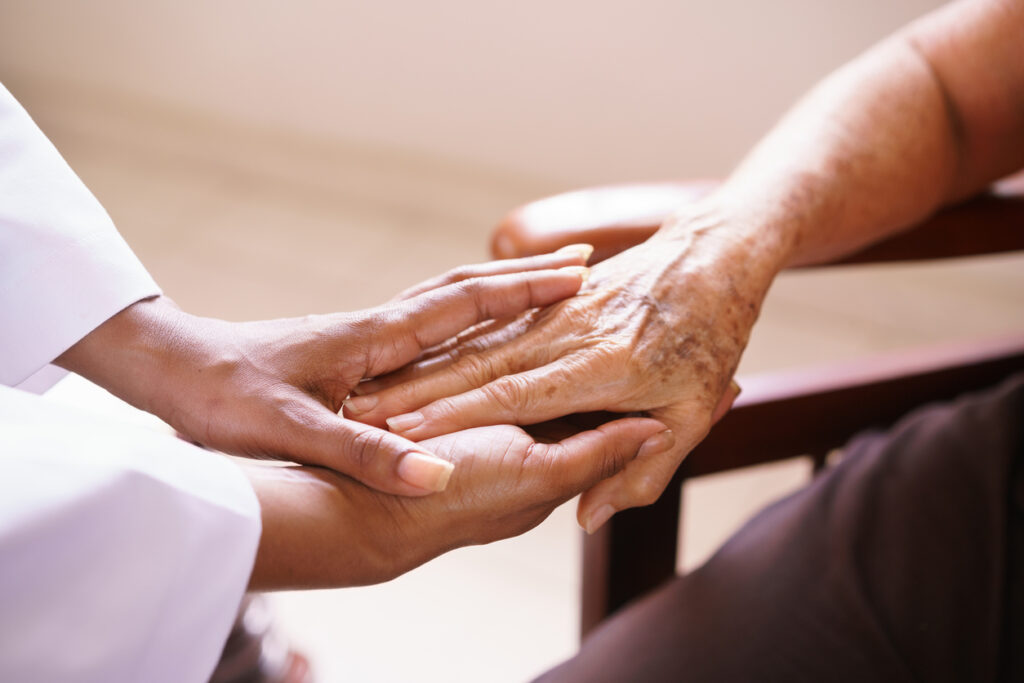Viruses such as the influenza virus (i.e. the flu) are rapidly spreading around the nation this time of year, sickening thousands of individuals and killing many more. The Centers for Disease Control and Prevention (CDC) estimated that from October 1, 2019 through February 8, 2020, approximately 14,000-36,000 people have died from the flu and between 26,000,000-36,000,000 have fallen ill after contracting the viral infection. We were also recently introduced to the coronavirus which has been renamed as Covid-19 but has not yet become a major threat to the U.S.

Because viruses have the potential to sicken and even kill individuals, particularly those who have a weakened immune system, we must remember that anyone is susceptible to catching the flu, even nursing home residents.
How do viruses like the flu spread in nursing homes?
Unfortunately, the flu does have a way of getting into nursing homes, putting the health of those living there at risk. According to the CDC, the flu can be introduced to nursing home facilities by:
- Newly admitted residents
- Healthcare personnel
- Visitors
When a virus is not contained within a nursing home, it has the potential to spread, and rather quickly, causing the residents living there to “experience severe and fatal illness during influenza outbreaks.” The CDC says that when there is “influenza activity in the local community, active daily surveillance for influenza illness should be conducted among all new and current residents, healthcare personnel, and visitors of long-term care facilities, and continued until the end of the influenza season.”
The CDC goes on to explain that when the influenza is active, facilities should follow the steps provided below that aim to help keep the virus under control:
- In the event a lab has confirmed a single case of influenza within a nursing home facility, “it is likely there are other cases among exposed persons.”
- Homes should be conducting “daily active surveillance until at least one week after the last [case that was confirmed by the lab] was identified.”
- Nursing homes should be taking the time to ensure that the lab that is performing the influenza test notifies the facility of the test results promptly.
- The CDC also says that the local public health and state health departments “should be notified of every suspected or confirmed influenza outbreak in a long-term care facility, especially if a resident develops influenza while on or after receiving antiviral chemoprophylaxis.”
To further prevent the flu from spreading in a nursing home, healthcare workers along with visitors who are identified as having symptoms associated with the virus should avoid coming to the home until their symptoms have cleared up. The CDC says that some aging individuals, “including those who are medically fragile and those with neurological or neurocognitive conditions, may manifest atypical signs and symptoms of influenza virus infection (e.g. behavior change), and may not have a fever.” The CDC recommends that when a facility has identified a resident who is ill that they place them on “droplet precautions with room restriction and exclusion from participating in group activities.”
How to prevent flu symptoms from worsening?
While there have been some individuals who have managed to recover from the flu without seeking medical attention, the chances of an elderly individual recovering without the proper medical treatment are rather slim. Therefore, if a resident were to catch the flu, they would need to be provided with the proper medical treatment promptly to help weaken the virus and prevent it from spreading to other residents.
Now, because many nursing homes are understaffed, meaning each staff member employed is required to care for more residents than they are physically able to handle, it can delay the process of identifying and treating flu symptoms as they show up in residents. Therefore, when visiting with your loved one, it is always a good idea to keep your eye out for any symptoms of the flu. In the event you notice anything out of the ordinary, be sure to bring it to the attention of the nursing staff so that it can be addressed promptly.
What if my loved one has come down with an illness or other health condition because they weren’t being properly monitored by nursing home staff members?
Unfortunately, this is one of the reasons why viral infections and similar conditions manage to spread within facilities. When nursing home workers aren’t tending to residents as frequently as they should or ignore signs that indicate a resident is coming down with something serious, they are being neglectful and, in that case, could be held liable for your loved one’s suffering. Therefore, if your family member who is living in a nursing home in Chicago has become sick or developed a health condition you believe could have been prevented had they received the attention they needed, contact the Chicago, IL nursing home abuse lawyers at Dinizulu Law Group, Ltd.
Our team of dedicated and experienced Chicago, IL nursing home abuse attorneys are here to help you understand your rights as well as what can be done to combat nursing home abuse and neglect.
You can contact Dinizulu Law Group, Ltd. at:
221 North La Salle Drive, Suite 1100
Chicago, IL 60601
Phone: 1-312-384-1920
Website: www.dinizululawgroup.com



